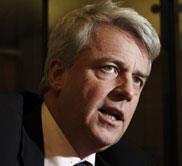The secretary of state for health is to be given powers to decide which services will be commissioned by the new NHS Commissioning Board.
The Health and Social Care Bill, published this afternoon, confers power on the health secretary to require the commissioning board to commission services for the armed forces, the prison population and prescribed dentistry as well as “such other services or facilities as may be prescribed”.
The impact assesment suggests other services will include pharmaceutical services, ophthalmic services and secure mental health services as well as the £9.8b of specialised services currently the responsibility of SHAs and specialised commissioning groups.
Under the bill, if the health secretary wishes to issue a regulation requiring the NCB, rather than commissioning consortia, to directly commission a service the health secretary must have regard to: (a) the number of individuals who require the provision of the service or facility; (b) the cost of providing the service or facility; (c) the number of persons able to provide the service or facility; (d) the financial implications for commissioning consortia if they were required to arrange for the provision of the service or facility.
These services are likely to include specialised services for rare conditions and services currently commissioned regionally by groups of primary care trusts or the strategic health authority.
Provision has also been made under the bill for the NCB and consortia to pool resources to commission services.
The long awaited bill confers nine duties on the NCB, including to improve quality, encourage integrated working and obtain advice “from persons with professional expertise relating to the physical or mental health of individuals”.
The NCB’s duty to promote innovation provides a power to “make payments as prizes to promote innovation in the provision of health services”.
The bill stipulates that the chief executive and executive members of the board should be appointed by the non-executive members, but it makes provision for the first chief executive to be appointed by the secretary of state.
NHS chief executive David Nicholson has already been named as the first chief executive of the NCB when it comes into being in 2012.
Before the start of every financial year the health secretary must publish and lay before parliament a mandate specifying the objectives “the board should seek to achieve in the exercise of its functions during that financial year, and any requirements that the secretary of state considers it necessary to impose on the board for the purpose of ensuring that it achieves those objectives”.
The mandate will also include the board’s financial allocation for the year.
'Evolutionary' Health and Social Care Bill launched

Legislation to scrap primary care trusts and strategic health authorities, create commissioning consortia and give providers greater autonomy has been laid before parliament.
- 1
- 2
- 3
- 4
- 5
- 6
- 7
- 8
- 9
- 10
- 11
- 12
- 13
- 14
- 15
- 16
- 17
 Currently
reading
Currently
reading
Health secretary to get powers over commissioning board
- 19































































No comments yet